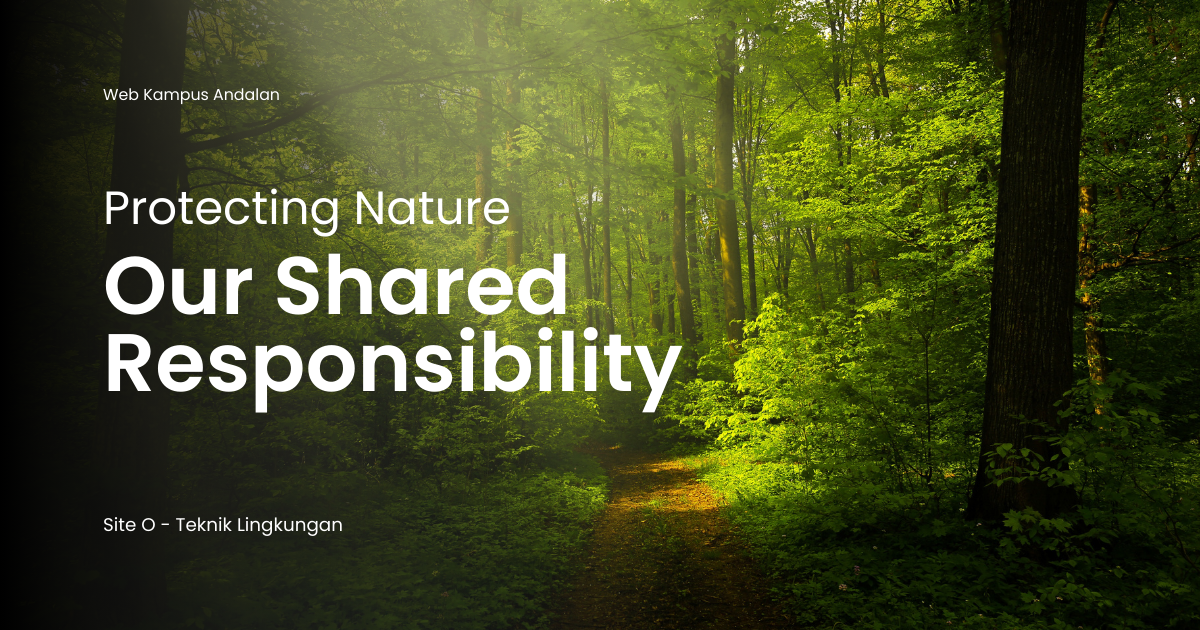
Pengetahuan Bahasa dan Komunikasi (Fisika)
Leveraging Language, Communication, and Negotiation Skills to Address Environmental Problems Among the Global Elite
The environmental crisis facing our world today — from climate change to biodiversity loss and pollution — requires collective action from all segments of society. However, addressing environmental issues often necessitates engaging a specific, highly influential group: the global elite. Wealthy individuals and corporations wield substantial power in shaping policies, driving innovation, and funding solutions for sustainability. This is why the skills of language, communication, and negotiation are critical tools in campaigns aimed at rallying the support of this powerful group.
Successful environmental advocacy must go beyond presenting the facts. It requires tailoring the message, understanding the values of wealthy individuals, and negotiating common goals. This article explores how the right use of language, coupled with strong communication and negotiation strategies, can drive environmental action among the rich and influential.
The Power of Language: Tailoring the Message for the Elite
-
Understanding the Audience's Values and Interests Engaging the global elite in environmental issues requires a deep understanding of what motivates them. Wealthy individuals often have varied interests, from legacy-building to philanthropy, business opportunities, and reputation. Language must be adapted to align environmental sustainability with these values. For example:
- Framing Climate Change as a Business Opportunity: When addressing business magnates, it’s effective to discuss climate change mitigation through the lens of innovation and profitability. Presenting green technologies or sustainable practices as not only ethical but also economically advantageous can capture their attention.
- Highlighting Environmental Philanthropy: Many wealthy individuals are involved in philanthropy. Campaigns can position environmental efforts as a chance to leave a lasting legacy, presenting opportunities to fund initiatives that not only save the planet but also carry their name forward for generations.
-
Speaking the Language of Influence Wealthy individuals often live in a world where influence, exclusivity, and prestige are paramount. Crafting messages that emphasize leadership in global environmental efforts or highlighting the exclusivity of participating in groundbreaking sustainability projects can appeal to this group. In language, tone, and content, the message must resonate with their social standing.
For instance, positioning climate action as an "elite cause" that requires the vision and leadership of global icons can elevate the prestige of getting involved. Celebrities and high-profile figures like Bill Gates and Elon Musk, who have linked their names with environmental projects, help reinforce this narrative.
Effective Communication: Building a Persuasive Narrative
- Emotional Appeal and Storytelling Communication that touches the heart is more likely to drive action. While facts and statistics are important, they often fail to inspire. Storytelling is an essential communication strategy in environmental advocacy, especially when trying to engage wealthy individuals. Stories of individuals or communities directly affected by environmental degradation humanize the issue and create empathy.
For example, explaining the consequences of deforestation through the story of displaced indigenous communities or detailing the impacts of plastic pollution on marine life can create an emotional connection. This helps wealthy individuals feel personally connected to the cause, making them more likely to engage financially or politically. - Utilizing Visual Communication Wealthy audiences often have limited time. Visual communication, such as infographics, videos, and interactive presentations, can convey complex environmental problems quickly and effectively. Presenting visual evidence of climate change, such as shrinking glaciers or deforested landscapes, alongside potential solutions, provides a clear and compelling narrative.
In recent years, visual campaigns have been instrumental in the success of environmental movements. Organizations like the World Wildlife Fund (WWF) and Greenpeace have used powerful imagery to draw attention to urgent environmental problems, reaching influential donors and decision-makers.
Negotiation Skills: Creating Win-Win Scenarios
- Aligning Environmental Goals with Elite Interests Negotiation is central to convincing the wealthy to support environmental campaigns. Successful negotiation involves creating win-win scenarios, where both parties achieve their goals. For the elite, this might mean aligning environmental action with their personal or business objectives, such as economic returns, reputation management, or social influence.
For instance, negotiating with business leaders can involve highlighting how sustainable practices reduce long-term operational costs, improve brand image, or open access to new markets. Companies like Tesla and Patagonia have demonstrated that environmental responsibility can drive consumer loyalty and profitability. This is a powerful negotiating tool when seeking buy-in from other corporations. - Demonstrating Tangible Impact and ROI (Return on Investment) Wealthy individuals and corporations often approach philanthropy and investments with a results-oriented mindset. They need to see a tangible return on their contributions, whether financial or societal. Negotiators must therefore provide clear metrics and examples of successful environmental projects. Demonstrating measurable impact, such as reductions in carbon emissions or the number of species protected, makes it easier for the global elite to commit resources.
Offering the elite transparency and control over their involvement in environmental projects can also be a strong negotiation tactic. For instance, creating dedicated funds where wealthy individuals can directly monitor how their money is being used fosters trust and ensures long-term engagement.
Case Studies: Successful Environmental Campaigns Targeting the Wealthy
- The Giving Pledge One of the most successful initiatives involving the global elite in solving pressing global challenges, including environmental issues, is The Giving Pledge. Started by Bill Gates and Warren Buffet, it encourages billionaires to commit the majority of their wealth to philanthropic causes, including sustainability. The key to its success lies in its appeal to the legacy and social influence of wealthy individuals. By positioning philanthropy as a way to solve urgent global issues and leaving a lasting mark, the Giving Pledge has attracted dozens of billionaires to invest in environmental solutions.
- One Trillion Trees Initiative Another high-profile example is the One Trillion Trees Initiative, launched by the World Economic Forum and supported by influential figures like Marc Benioff of Salesforce. The campaign leverages the language of climate leadership and sustainability as a legacy issue. By framing tree planting as an impactful, tangible solution to climate change, it has successfully drawn in wealthy individuals and corporations to fund reforestation efforts worldwide.
- Leonardo DiCaprio Foundation The Leonardo DiCaprio Foundation has been a leader in advocating for environmental protection. DiCaprio's communication strategy emphasizes urgency and responsibility, appealing to his wealthy peers through emotional storytelling and the prestige of being a global environmental leader. His influence and ability to rally support from elite circles have been instrumental in funding large-scale conservation projects.
Conclusion
Engaging the global elite in solving environmental problems requires a delicate balance of language, communication, and negotiation. Understanding the motivations of wealthy individuals, crafting emotionally compelling narratives, and creating mutually beneficial partnerships are key strategies for driving action on environmental issues. By using these skills, environmental advocates can turn powerful, influential individuals into crucial allies in the fight for a sustainable, healthy planet. In a world where the actions of a few can have a massive impact, the ability to communicate effectively and negotiate common ground is essential for real change.









